Is Your HVAC System At Risk Of Power Surges?
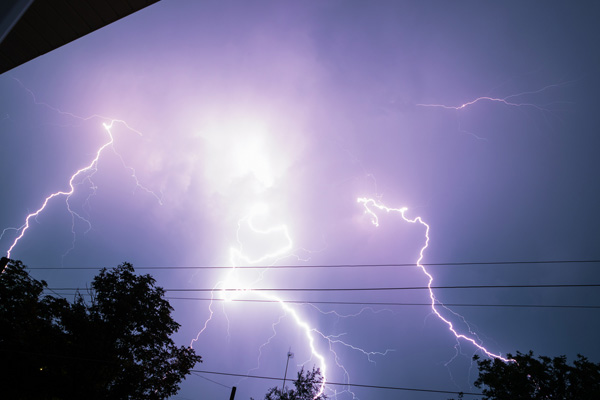
Modern structures heavily rely on HVAC systems for ensuring the safety and comfort of their occupants. Nevertheless, these systems are susceptible to power surges that can lead to significant damage and operational interruptions. Triggers of power surges can range from lightning strikes and power disruptions to fluctuations in the electrical grid. A power surge drives a swift influx of electrical current through the system, potentially wreaking havoc on key components like the compressor, fan motor, and control board. This can culminate in expensive repair operations or necessitate complete system replacement. Hence, it’s crucial to shield HVAC units from power surges through the use of HVAC surge protection – surge protectors and adherence to electrical safety protocols.
Is Your HVAC System Shielded Against Power Surges?
Contents
If you find yourself questioning this, it’s highly likely your HVAC system lacks protection against power surges. To guarantee your system’s resilience against power surges, it’s advised to consult an expert HVAC technician. They can provide guidance on enhancing your system’s readiness for power surges and disruptions.
Related Article: Top 7 Things You Should Never Do To Your AC Unit
Understanding Power Surges
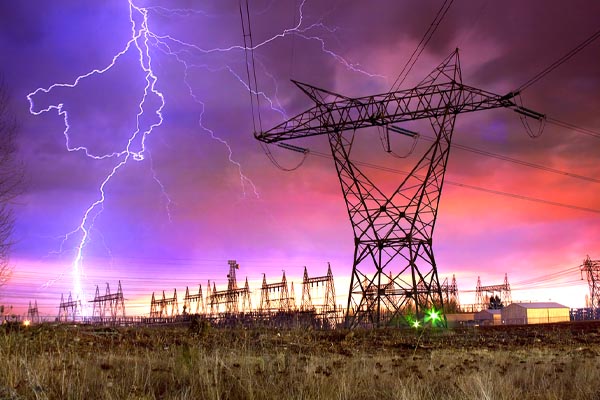
A power surge refers to a swift spike in electrical voltage that surpasses the standard or expected levels in a power supply system. Power surges can be instigated by sudden disruptions in the electrical flow like lightning strikes, power disruptions, or activation and deactivation of large electrical appliances like air conditioners, fridges, or elevators. A power surge can last a fraction of a second but still inflict serious harm to electrical devices and appliances. The excessive electrical energy can overload and damage the sensitive electronic components, causing them to fail or malfunction.
Differentiating Power Surges, Power Outages, and Brownouts
Power surges, power outages, and brownouts all stem from electrical power supply issues but denote different problems. Below is a concise breakdown of each:
- Power surge: A brief and quick increase in electrical voltage, typically fleeting, caused by lightning strikes, power outages, or the operation of high-energy electrical equipment. Power surges can harm electronic devices and appliances, necessitating the use of surge protectors for protection.
- Power outage: Happens when the electrical power supply to a building or area is halted, leading to a total loss of power. They can be triggered by diverse factors, including extreme weather, equipment malfunction, or planned maintenance.
- Brownout: Represents a decrease in voltage in an electrical power supply, leading to dim or flickering lights, reduced power to appliances, and similar issues. Brownouts can be triggered by high demand on the power grid, equipment malfunction, or problems with a building or area’s electrical system.
Related Article: Why Is My Air Conditioner Running In Short Bursts?
HVAC Components at Risk from Power Surges
HVAC Control Board
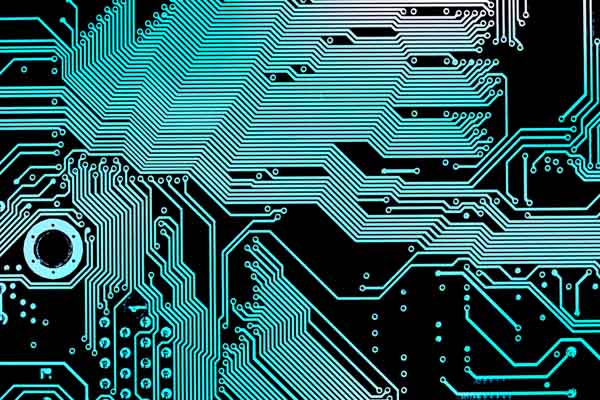
The HVAC system’s control board, often referred to as its “brain”, is susceptible to power surge damage. Damage to this component disrupts communication with the thermostat, leading to HVAC system malfunction and, subsequently insufficient heating or cooling, resulting in discomfort during severe weather conditions.
HVAC Compressor Motor
The HVAC system’s compressor motor, identifiable by wires extending from a box, has the role of taking in refrigerant at low pressure and temperature and raising both by compression. The motor, particularly susceptible to damage, houses multiple wires that transform electrical energy into kinetic energy. A power surge could overheat these wires, causing them to combust. A damaged motor also disrupts the compressor’s proper functioning.
Related Article: Understanding MERV Ratings: Choosing the Right Air Filter for Your HVAC System
HVAC Capacitor
The oval-shaped device, the capacitor, stores the electrical charge required to power your HVAC system’s electrical components. In a power surge event, the capacitor could suffer damage, leading to operational issues in your HVAC system.
HVAC Relay Switch
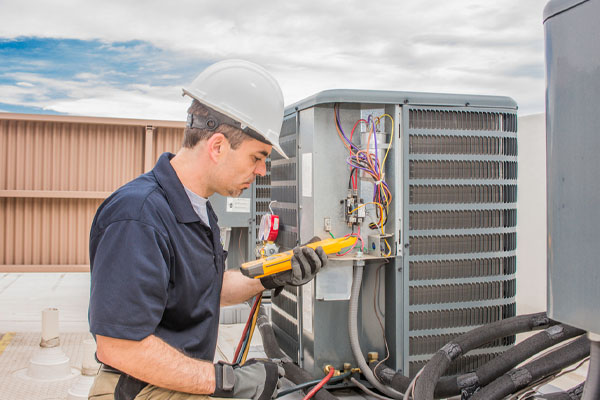
The relay switch is responsible for activating or deactivating certain high-voltage power-required components of your HVAC system. The coil around the electrical contactor in most relay switches could burn out if the voltage surpasses a certain level, disrupting the circuit and causing the relay switch to malfunction.
Strategies to Prevent Power Surge Damage to Your HVAC System
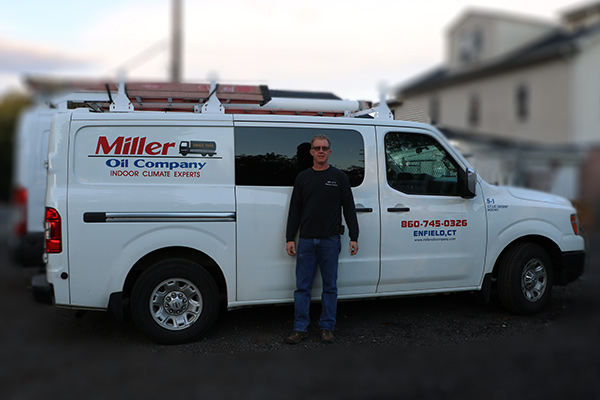
Power surges can inflict notable harm on HVAC systems, resulting in costly repairs or replacements. Here are some preventative measures to safeguard your HVAC system:
- Install Surge Protectors: Surge protectors can shield your HVAC system from abrupt power surges. They can be mounted on your HVAC unit and on electrical panels to offer additional protection.
- Unplug Appliances During Storms: During thunderstorms or other extreme weather, it’s wise to disconnect your HVAC system and other appliances to prevent damage from lightning strikes or power surges.
- Use High-Quality Wiring: Superior wiring and components can assist in preventing power surge damage to your HVAC system. It’s recommended to have a professional electrician perform the installation to ensure it’s done correctly.
- Maintain Your HVAC System: Regular HVAC system maintenance can help avert power surge damage. This includes cleaning and replacing air filters, checking refrigerant levels, and examining electrical connections.
- Consider a Whole-House Surge Protector: A whole-house surge protector can shield your entire home from power surges, including your HVAC system. This protector type is installed at the main electrical panel and can cover all home appliances.
HVAC Power Surge Damage Warranty Warning
HVAC manufacturers’ warranties generally do not cover power surge damages. While homeowners’ insurance may sometimes cover these costs, it can be difficult to substantiate such claims as the damage might occur gradually. Consequently, you may end up bearing the cost of expensive HVAC repairs due to factors like a lightning strike, overloaded electrical circuits, or appliance-related issues.
Related Article: Do You Know The Signs Of An Overheating Furnace?
Conclusion
HVAC systems are hefty investments necessary for maintaining your home’s comfort. It’s vital to take the required steps to prevent expensive power surge damage. An investment in preventive measures is more economical than expensive repairs and replacements. Trust the counsel of your reliable HVAC professionals for proper care.
Related Article: Why Your Gas Furnace Won’t Function Without Electricity
Contact Miller Oil Company for All Your HVAC Needs

Miller Oil Company is the top provider of heating and cooling services in the greater Enfield, Connecticut area. Our team of certified technicians specializes in HVAC tune-ups, repairs, installations, replacements, and more. We always ensure that your system is serviced correctly. As the most popular HVAC service provider, we’re always ready to serve you!
We provide the most affordable heating and cooling services in the area. Our name stands for quality service and affordability. Our maintenance services improve comfort and energy efficiency while lowering home heating and cooling costs. Our team can recommend the most suitable HVAC solution for your home or business, keeping your budget in mind. All our work comes with a satisfaction guarantee. Contact Miller Oil Company today to schedule a service appointment. Call now!
To schedule a service appointment, contact Miller Oil Company today. We also offer free, in-home estimates. Click the link to view our service area.